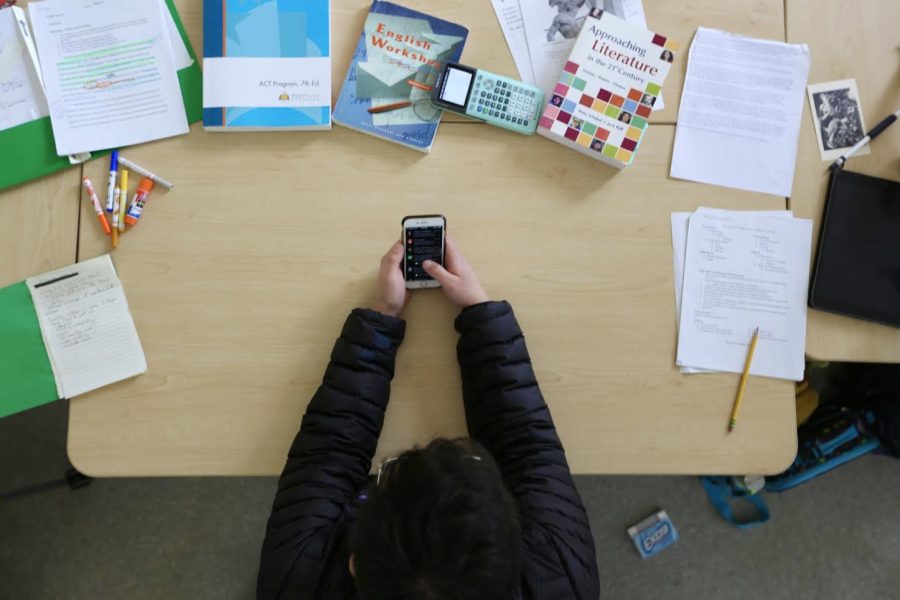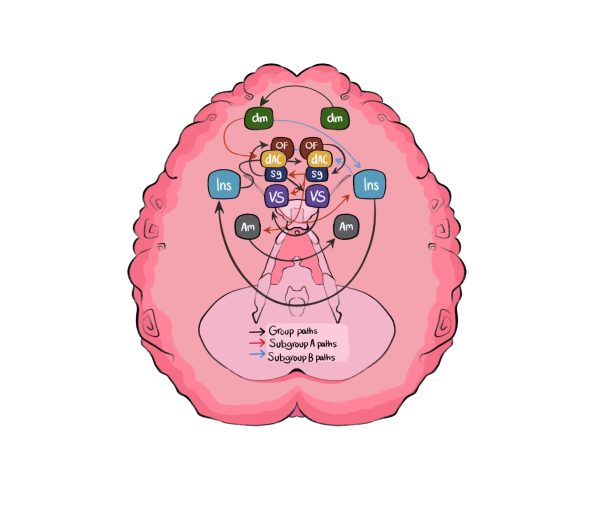Digital Delays
Since the dawn of the digital age, technology and procrastination have gone hand-in-hand. From smartphones to computers to everything in between, there always seem to be electronics nearby. As humans encounter their daily tasks, some sort of delay in their completion feels inevitable. These delays, typically spent indulging another—often less important—activity, are referred to as procrastination.
According to an online study written by Tech.co, one of the main reasons technology contributes to procrastination is because it allows for activities to require less effort. At first, this may seem like a boost to productivity, but that is anything but the case. Since many tasks are now automated, humans tend to set them aside because of how little time they take. The constant dismissal of tasks to be finished at a later time is one example of how technology can exacerbate procrastination.
Processing softwares employ a vast number of tactics to capture the attention of mobile device users. These can include push notifications, vibrations, app suggestions, etc. Pausing an activity to check a device or disengaging from conversations in order to check a screen are only some of the consequences these tactics have on humans. The overarching outcome is how these strategies remove the user’s focus from the present. In doing so, their attention is drawn away from the task at hand—stalling progression.
“It’s a mixture of not wanting to do [home]work and wanting to feel comfortable,” said Joey Lopez, CHS senior, when asked what contributes to his procrastination.
Scott Campbell, a Media and Communications professor at the University of Michigan has studied technology’s effect on procrastination levels. Further, Campbell has witnessed a full-scale technological revolution as the world moved into the digital age during his lifetime.
Regarding the negative perception of how prevalent technology has become in human life, Campbell takes a more circumstantial yet optimistic approach. According to Campbell, technology’s implementation within human life has evolved quicker than human psychology has throughout the timespan of the digital age.
“I think that there’s a gap between our consciousness and the way that the social fabric is now mediated,” Campbell said. “I don’t think we’re reminded about all of the implications in the layers of the digital flows and configurations that shaped what life is like today.”
When looking at this issue through a wider lens, it can begin to feel concerning how much technology is involved in our world. Whether it be small tasks on a phone or constantly checking emails, technology seems like a vital component of day-to-day life. In addition to this, the degree to which technology grasps human attention has only worsened procrastination levels in recent years. Through his research, Campbell has hypothesized a progressive approach to solutions regarding this issue.
“I think [the term] habit is a more useful way of thinking about how to address issues of procrastination,” Campbell said. “Recognize our habits, and work on curbing them.”
Clearly, humans can’t fully eliminate technology from their daily lives to reduce procrastination due to how many tasks now require the use of technology. But working on how to adapt within the digital age and overcome this issue could be a highly beneficial solution.
“How do we suggest that we have an entire generation addicted to something that has become fundamental in how people live?” Campbell said.
To take action, Campbell, along with others, have worked to find solutions to reduce procrastination caused by technology. One of the most promising options is to set up a daily agenda. Countless studies have shown that when people plan out their day and take it step-by-step, they stay much more organized and productive. In doing so, they grade themselves more heavily on task completion which reduces procrastination throughout the day because of the need to complete their agenda. Other examples of solutions could include locking up the device when work needs to be done or even something as simple as setting time limits on how long to use certain apps.
“[One way] I’ve reduced how long I use my phone is to put it downstairs, that way I don’t have access to it, and that has helped,” Lopez said.
As the prevalence of technology continues to grow, it is important to fabricate controlled plans to limit its negative effects. Human minds need breaks, but the creation of a habit due to constant procrastination can be extremely harmful. Forming healthy study habits and planning out days not only eases the mental torture of high amounts of work, but also speeds up completion in the process.
“We have to try to recognize [habits] on both sides and roll with it. Try to mitigate the bad habits and foster the good habits,” Campbell said. “We’re not just using [technology] as a tool, we’re actually creating the world with it.”










![[Caption]. [] by [Graphic by Sarah Fay] is licensed under [CC BY-NC-].](https://chscommunicator.com/wp-content/uploads/2023/12/mentalhealth_image-600x450.webp)



